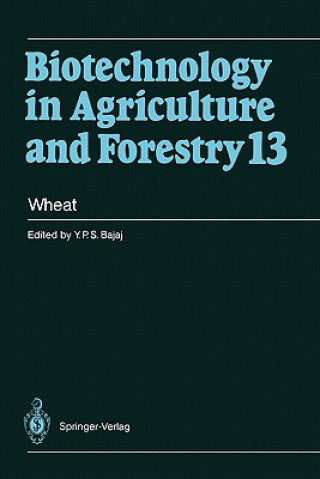
Doručení
Nákupní rádce





Nehodí se? Vůbec nevadí! U nás můžete do 30 dní vrátit
 Dárkový poukaz
V libovolné hodnotě
Dárkový poukaz
V libovolné hodnotě
S dárkovým poukazem nešlápnete vedle. Obdarovaný si za dárkový poukaz může vybrat cokoliv z naší nabídky.
Wheat
 Angličtina
Angličtina
 685 b
685 b
30 dní na vrácení zboží
Mohlo by vás také zajímat


Wheat, which is the second most important cereal crop in the world, is being grown in a wide range of climates over an area of about 228 945 thou sand ha with a production of about 535 842 MT in the world. Bread wheat (Triticum aestivum L. ) accounts for 80% of the wheat consumption, howe ver, it is attacked by a large number of pests and pathogens; rusts and smuts cause enormous damage to the crop and reduce the yield drastically in some areas. The major breeding objectives for wheat include grain yield, earliness, resistance to lodging and diseases, spikelet fertility, cold tolerance, leaf duration and net assimilation rate, fertilizer utilization, coleoptile length, nutritional value, organoleptic qualities, and the improvement of charac ters such as color and milling yield. The breeding of wheat by traditional methods has been practiced for centuries, however, it has only now come to a stage where these methods are insufficient to make any further breakthrough or to cope with the world's demand. Although numerous varieties are released every year around the world, they do not last long, and long-term objectives cannot be realized unless more genetic variability is generated. Moreover, the intro duction of exotic genetic stocks and their cultivation over large areas results in the depletion and loss of the native germplasm pool.
Informace o knize
 Angličtina
Angličtina
Kategorie




 Jak nakupovat
Jak nakupovat
























